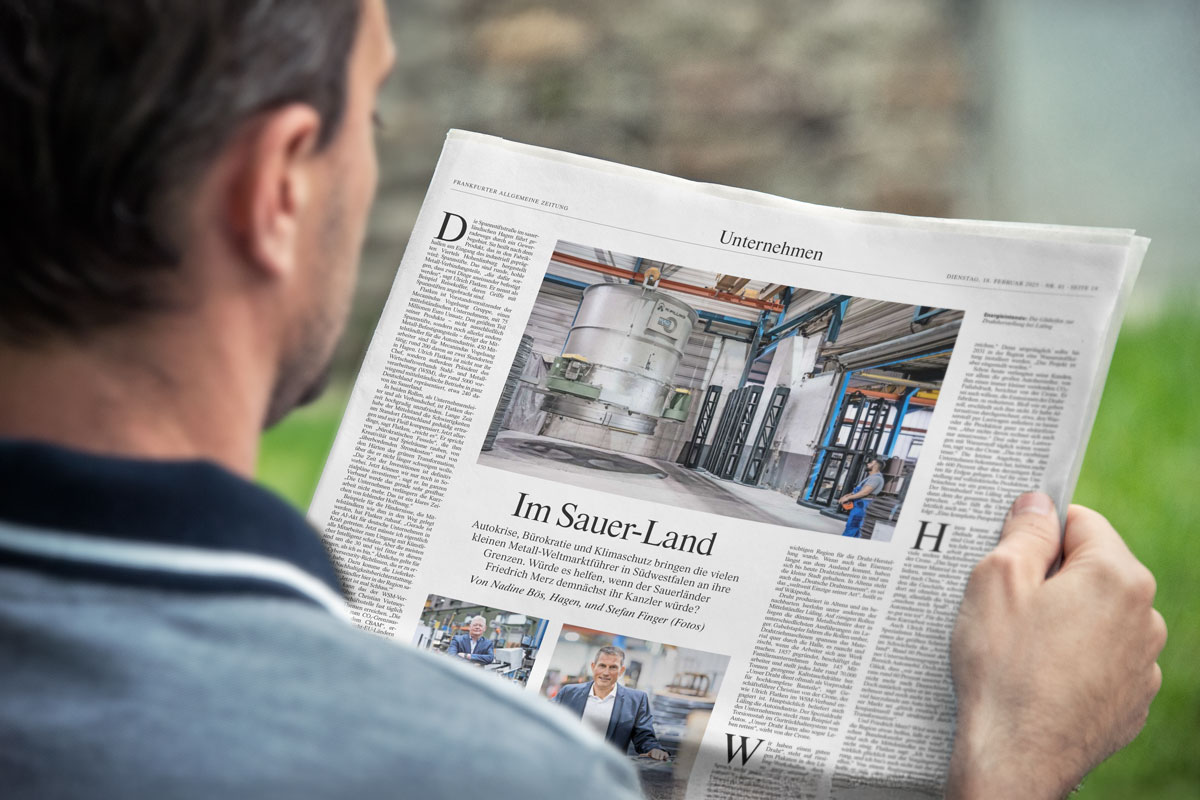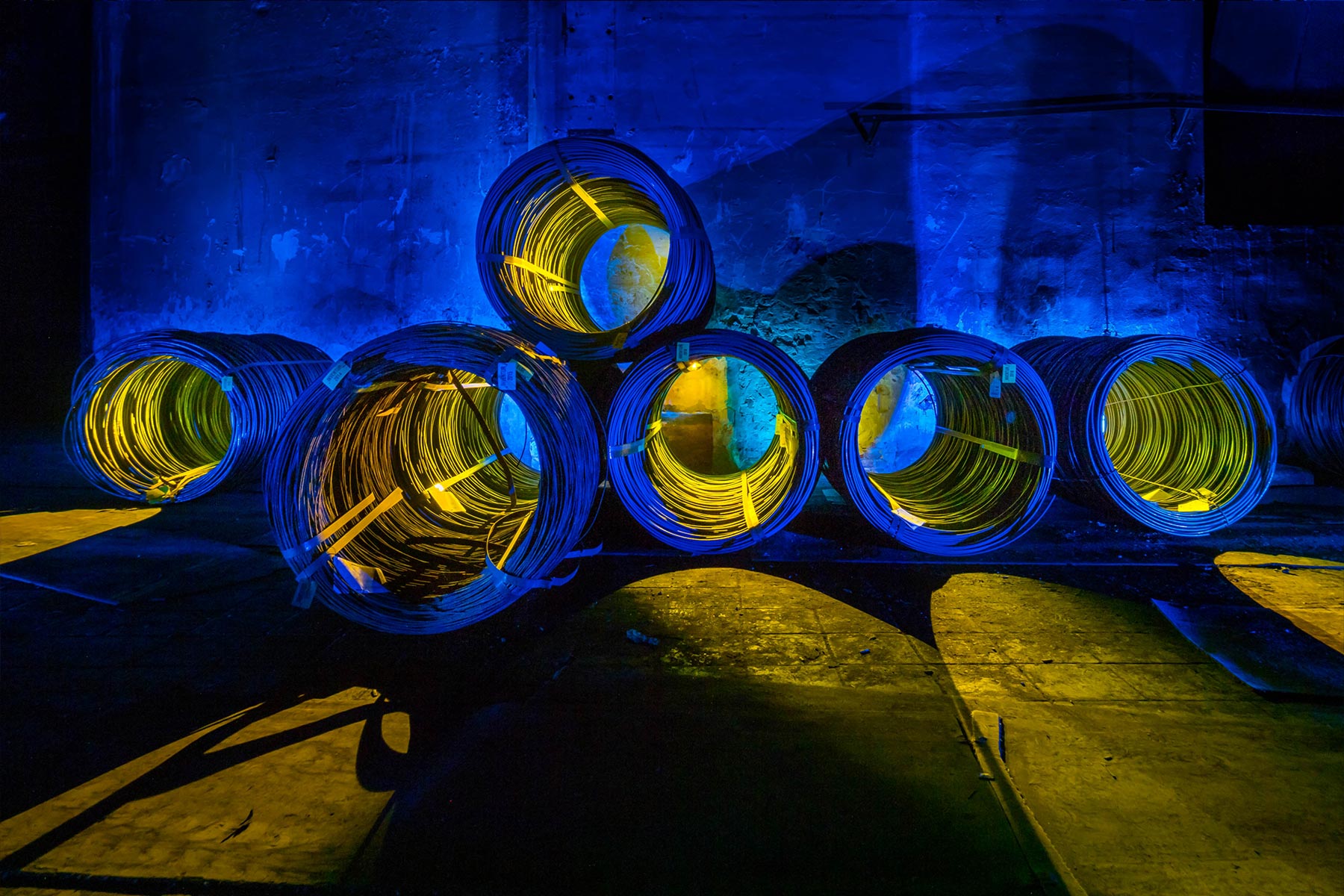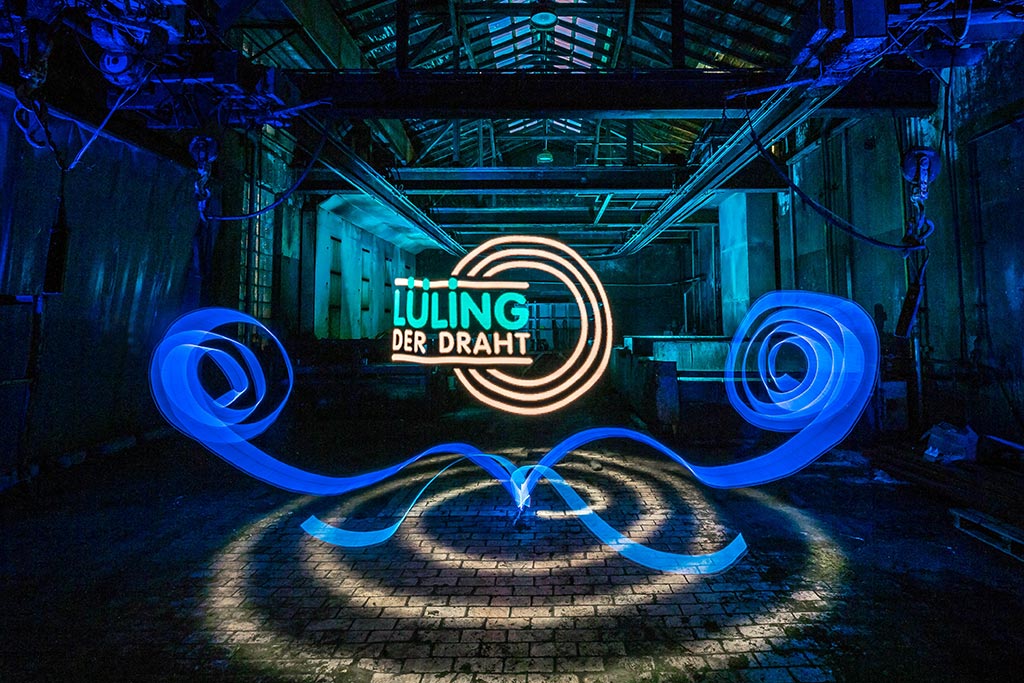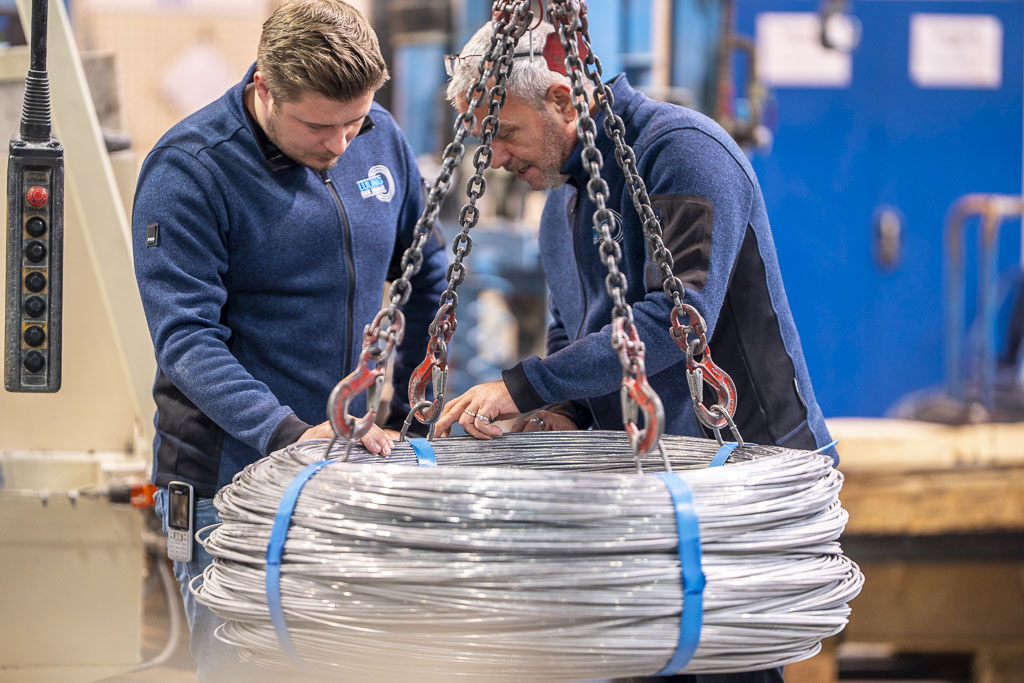The Frankfurter Allgemeine Zeitung (FAZ) dedicated an extensive article in its February 18, 2025 issue to the growing challenges facing the German steel and metal industry. LÜLING was highlighted as an example of a mid-sized company struggling with rising energy costs, unclear political frameworks, and a weakening automotive sector.
Energy Crisis Threatens Competitiveness
With our plants in Altena and Iserlohn, we consume 35 million kWh of natural gas and 7.5 million kWh of electricity annually – energy costs that have increased by over 300% in recent years. While we are technically preparing our production facilities for hydrogen use, economic feasibility remains uncertain:
- Current hydrogen prices are approximately 600% higher than current natural gas prices.
- A complete electrification of production would require the electricity consumption of an entire small town.
Our Managing Director, Christian von der Crone, emphasized in the FAZ interview:
*”We need a clear strategy and realistic cost planning for the hydrogen transformation. Without reliable framework conditions, the transformation remains a vision rather than an economically viable solution.”*
Automotive Industry Under Pressure – and So Are Its Suppliers
The crisis in the European automotive industry directly impacts us as a supplier. While our cold heading wire is used worldwide in critical safety-relevant components, declining demand in Germany and Europe presents a significant challenge.
- Global markets remain stable: We supply customers in 21 countries, including the USA and China.
- Europe is weakening: The German automotive industry is in a severe crisis, with direct consequences for the entire supply chain.
What Needs to Change?
To secure the future of Germany as an industrial location, the following measures are essential:
- Reliable energy prices
- Reduced bureaucracy for mid-sized businesses
- Clearly defined strategies for hydrogen & decarbonization
We actively advocate for sustainable solutions in the wire industry – but without political clarity, the situation remains critical.



